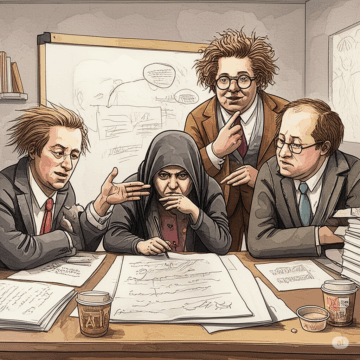by Kyle Munkittrick

To write well with AI, you’ve got to understand Socrates.
Paul Graham and Adam Grant argue that having AI write for you ruins your writing and your thinking. Now, honestly, I tend to agree, but I thought these smart people were making a couple mistakes.
First, they seemed to be criticizing first drafts. If you asked a person to write a poem in five minutes with vague instructions, unless they were a champion haiku composer like Lady Mariko from Shogun, it would probably be pretty bad. AI is best in conversation, reacting to feedback. Sure the initial draft might be bad, but AI can revise, just like we can. Second, and more important, if AI shouldn’t be doing the writing, it should probably be the critic. Even if it didn’t have good taste, it could surely evaluate a specific piece, given sufficient prompt scaffolding. Right?
After completing a major portion of a draft of an in-progress novel, I decided to test my theory. I shared the first Act with Claude (3 Sonnet and Opus) and Boom! I got exactly what I hoped for—some expected constructive criticism along with glowing praise that my novel draft was amazing and unique.
In reality, it was not.
This was not a skill issue! It was a temptation issue. My prompt was ostensibly well-crafted. I knew how to avoid exactly this problem, but I didn’t want to. I knew, deep down, that my novel was, in fact, overstuffed, weirdly paced, exposition dumpy, and had half a dozen other rookie mistakes. Of course it was! It was a draft! But I crippled my AI critic so that I could get a morale boost.
The sycophantic critic is an under-appreciated, and, to me, equally concerning, risk of using AI when writing. Read more »
